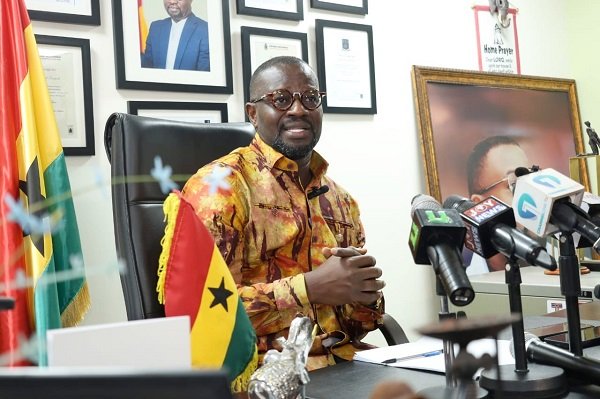Hot!
Russia fighting for motherland in Ukraine – Vladimir Putin

Russian President Vladimir Putin said Russian forces in Ukraine were fighting for the future of their motherland, in his annual address marking victory over Nazi Germany in World War Two.
Despite rumours he would make a major announcement his speech stuck largely to defending Russia’s invasion.
He tied the war in Ukraine to victory in 1945, blaming the West and Nato for rejecting security demands.
Almost 10 weeks into the invasion, civilian casualties continue to mount.
Some 60 civilians are feared dead in the eastern town of Bilohorivka, after a Russian attack on a school where people were trying to escape bombardment.
Flanked by military top brass, Russia’s leader spoke of Ukrainians as fascists, repeating his false claim that the democratic government in Kyiv was run by neo-Nazis.
Defending the motherland had always been sacred, he said, referring to the eastern region which is now the main focus of Russia’s assault: “Today you are fighting for our people in Donbas, for the security of Russia, our homeland.”
He also made unfounded allegations against Nato and Ukraine and described the invasion as a pre-emptive rebuff: “They were preparing a punishing operation in Donbas to intrude on our historic lands. In Kyiv they were saying they might get nuclear weapons and Nato started exploring the lands close to us, and that became an obvious threat to us and our borders.”
There had been speculation that Russia’s president may be considering a change of military strategy, either a full declaration of war, rather than the current so-called special military operation, or a mobilisation of Russian men to boost the armed forces.
Instead, he said he was signing a decree for families of the dead and wounded in Ukraine to receive special support.
Source: BBC
Hot!
Annoh Dompreh raises alarm over DACF arrears, calls for payment of contractors

The Member of Parliament for Nsawam Adoagyiri, Frank Annoh Dompreh, has expressed concern over delays in the release of the District Assemblies Common Fund, warning that the situation is stalling development across the country.
On his facebook page, he described as a matter of urgent national importance, the Minority Chief Whip pointed to what he sees as a growing crisis of unpaid contractors, abandoned projects, and halted infrastructure works in many districts.
He noted that several communities are grappling with half completed schools, unfinished health facilities, abandoned markets, deteriorating roads, and stalled sanitation projects.
According to him, many contractors who have executed projects for district assemblies have not been paid, forcing some construction firms to demobilise from sites while workers lose their jobs.
He stressed that the District Assemblies Common Fund is not a discretionary allocation but a constitutional requirement under Article 252 of the 1992 Constitution, intended to support development at the local level.
In his view, years of delayed releases and accumulated arrears have weakened district development financing and disrupted projects meant to improve living conditions in communities.
He further argued that some payments made in recent years were largely the settlement of old debts rather than funding for new or ongoing projects, a situation he believes has affected contractor confidence and local economic activity.
He described the issue as more than a budgetary challenge, characterising it as a development emergency and a governance concern.
He therefore urged the appropriate authorities to pay outstanding DACF arrears, settle contractors who have completed their work, and ensure that transfers to districts are automatic and predictable.
He maintained that decentralisation can only succeed when district assemblies receive adequate and timely funding to carry out development projects.
He emphasised that stalled projects directly affect ordinary citizens, since they rely on such infrastructure for education, healthcare, transportation, sanitation, and economic activities.
He called for renewed attention to grassroots development, insisting that national progress should not be concentrated only in major cities but extended to all communities.
By: Jacob Aggrey
Hot!
Breaking: Footballer who killed two children in Abesim handed lifetime sentence

Richard Appiah, the footballer who killed two children and stored part of their bodies in a fridge at Abesim in the Bono Region in 2021 has been handed a lifetime sentence.
This was after a five member panel of judges at the Accra High Court returned a verdict of guilty against the convict.
Appiah, 32, also a draughtsman would spend the rest of his life in prison after he was convicted of murder.
More more more
BY MALIK SULLEMANA






